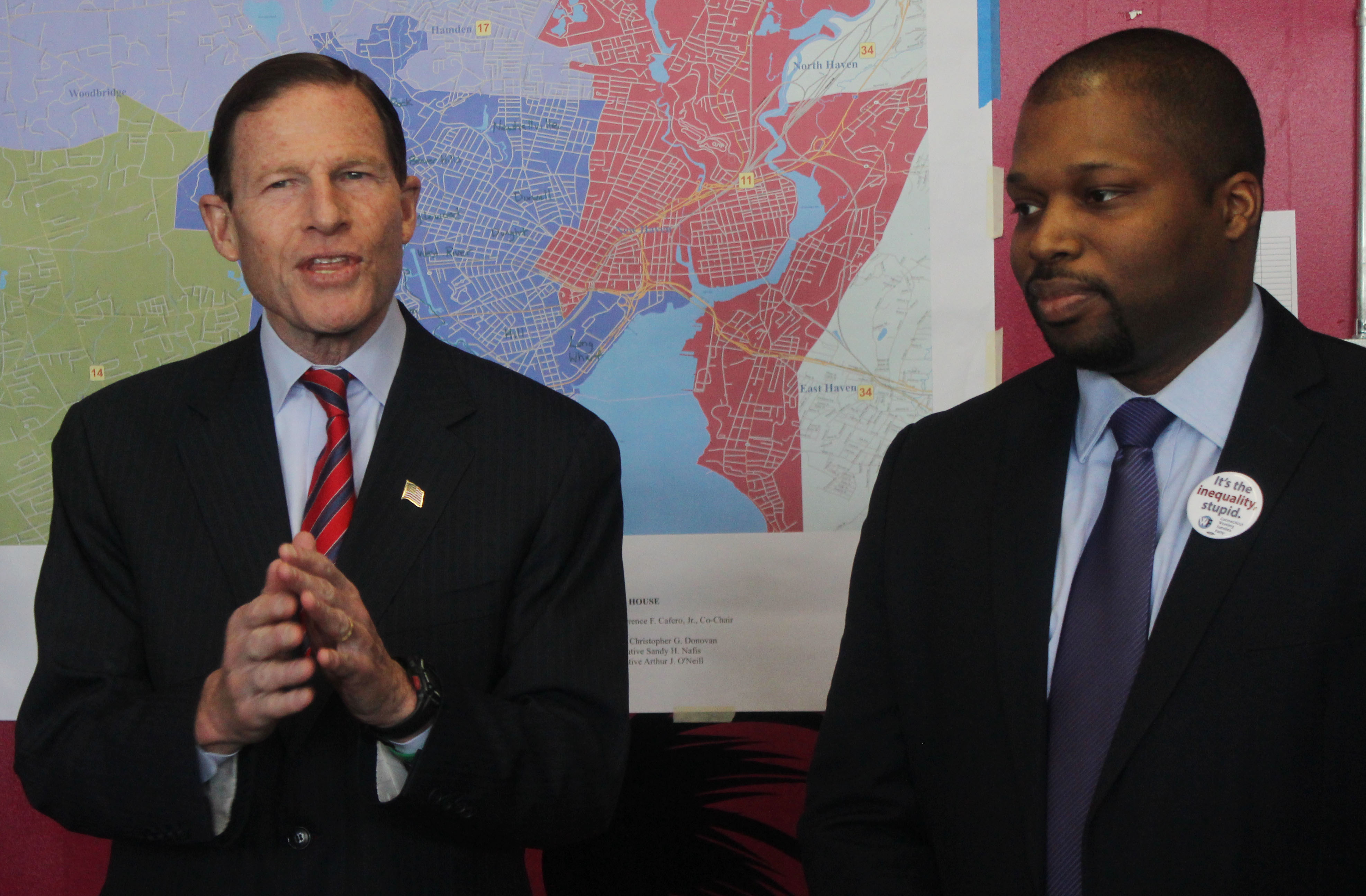
Connecticut Senators Richard Blumenthal LAW ’73 and Chris Murphy joined fellow lawmakers last Wednesday to introduce legislation that would revoke the gun industry’s unique protection against civil suits filed by victims of gun violence.
The bill — the Equal Access to Justice for Victims of Gun Violence Act — would repeal the 2005 Protection of Lawful Commerce in Arms Act, which first established the gun industry’s liability shield. The PLCAA bars prospective plaintiffs from suing firearm manufacturers, distributors, dealers and importers in either state or federal courts except under certain explicitly enumerated circumstances. These include cases when gun companies have engaged in negligent entrustment, broken laws due to negligence, committed knowing violation of state or federal statute and breached contract or warranty.
Despite these exceptions, Blumenthal says the bill infringes on basic judicial entitlements of American citizens. But gun rights proponents argue that the statute simply guarantees gun dealers and manufacturers the same protection afforded to other industries.
“We’re here to repeal a law that makes a mockery of American justice,” Blumenthal said at the press conference when the bill was unveiled. “We’re very simply trying to give victims of gun violence the same day in court that every other American has when they are harmed by law breakers.”
NRA Spokeswoman Catherine Mortensen, however, said that the PLCAA ensures that legal action brought against the firearm industry comports with longstanding rules of law. She added that replacing the PLCAA would create a special class of liability for gun manufacturers and dealers, putting them at a disadvantage relative to other industries.
“You can’t sue General Motors because somebody uses one of their cars to commit a crime, so why should you be able to sue a firearm company if a firearm is used to commit a crime?” Mortensen questioned.
While the PLCAA does exclude product defects and illegal sales from its prohibition, it still exempts the gun industry from basic products liability law, according to the Brady Campaign to Prevent Gun Violence website. Because car manufacturers know that some vehicles will crash, they can be held responsible for failing to make cars crash-safe. The PLCAA exempts gun makers from that sort of accountability, the Brady Campaign said.
Staff Attorney at the Law Center to Prevent Gun Violence Ari Freilich said numerous cases have been discarded before reaching the courthouse because of the PLCAA. In one such case in 2014, the parents of a victim of the Aurora, Colorado movie theater shooting filed suit against the company that sold the shooter thousands of rounds of ammunition and a hundred-round magazine over the internet. As a result of the law, Freilich said, the case was discarded and victim’s parents now owe more than $200,000 in legal fees.
But Mortensen argues that these arguments do not necessitate the repeal of the PLCAA. She points instead to an underlying antipathy toward the gun industry to explain the bill’s motives.
“This is an attempt to sue companies that are engaged in a legal business into bankruptcy,” she said. “The Obama administration should focus on prosecuting criminals instead of trying to bankrupt an entire industry in the name of politics.”
The bill’s introduction comes on the heels of a recent increase in national publicity surrounding liability for firearm dealers and manufacturers. President Barack Obama criticized the gun industry’s alleged special treatment in his town hall meeting on “Guns in America” last month. In addition, Vermont Sen. Bernie Sanders announced Thursday that he will cosponsor the new bill after facing harsh criticism from Democratic rival Hillary Clinton LAW ’73 for his 2005 vote in favor of the PLCAA and subsequent refusal to renounce that vote.
Mortensen said she sees no reason to believe the bill’s 2016 revival will find any more success than its predecessor. The new bill was first introduced in the House in 2013 but never made it out of the Judiciary Committee.
While he is not optimistic about the bill’s chances in the current Congress, Freilich did identify some reason for hope.
“I do think this country is at a tipping point,” he said. “I think we are witnessing a turning point nationally where [gun violence] is becoming an issue.”
Connecticut is one of 16 states that has not enacted legislation similar to the PLCAA at the state level.







